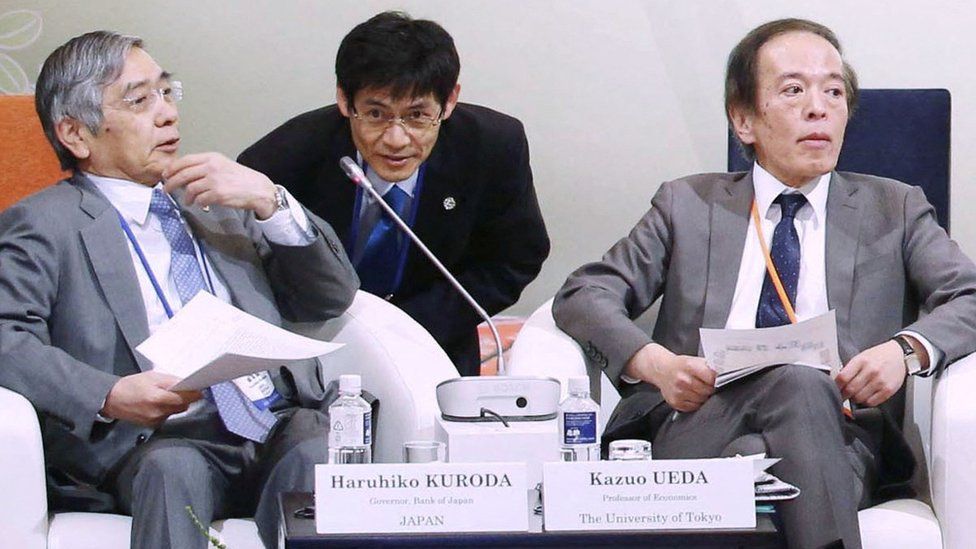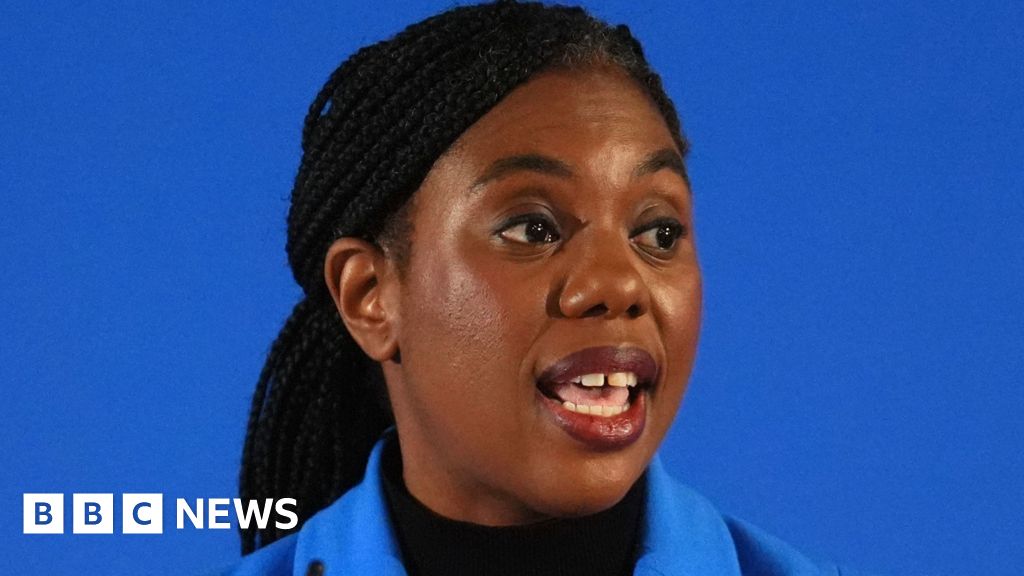ARTICLE AD BOX
 Image source, KYODO
Image source, KYODO
Kazuo Ueda (right) has been nominated to become the next Bank of Japan governor
As Japan's prime minister names his pick for the new head of the country's central bank, it is clear that the job comes with some major challenges.
The latest figures published by the government show the economy is recovering from the pandemic at a far slower pace than expected.
At the same time prices are rising at the fastest rate in more than 40 years.
So what can the academic Kazuo Ueda do to fix the world's third largest economy?
If approved by the country's parliament as the next governor of the Bank of Japan (BOJ), Mr Ueda has to deal with both slow economic growth and the highest inflation since 1981.
On Tuesday, official figures for the last three months of 2022 showed Japan's economy expanded by 0.6%, much lower than forecasts of 2% growth.
Meanwhile, data for December showed core consumer prices rose by 4% from a year earlier, twice the rate targeted by the central bank.
Experts warn that the next governor of the BOJ will struggle to raise interest rates to curb inflation without harming fragile economic growth.
The main reason for this is that prices in the country have been pushed up by external factors, like the war in Ukraine, rather than by the strength of the economy.
"If you try to tighten policy to address bad inflation that Japan is seeing right now, that runs the risk of setting you back in your own efforts to generate good inflation," Stefan Angrick of Moody's Analytics told the BBC.
When reports surfaced last week that Japan's Prime Minister Fumio Kishida would nominate Mr Ueda to replace Haruhiko Kuroda, who has been in the role for a decade, it took investors by surprise.
Although an academic by training, Mr Ueda is not a complete stranger to the central bank. He was a BOJ policy board member between 1998 and 2005.
He was at the central bank in 1999 when it introduced the unconventional policy of cutting the cost of borrowing to zero in an attempt to boost the country's economy.
However, Mr Ueda was not at the BOJ when it implemented its controversial policy of putting a cap on the interest rates paid on government bonds.
While the policy known as yield curve control (YCC) has little direct impact on ordinary consumers, investors have been pressuring the central bank to ditch it as they were seeing returns on their investments shrinking.
Last week, financial markets welcomed reports of Mr Ueda's nomination, as he was seen as more likely than other potential candidates to scrap the policy.
While the challenges faced by the next governor of the BOJ may be daunting, Mr Ueda is seen by some as a pragmatist who will be able to adapt to the changing economic landscape.
"He is not a man of dogma, but one of science; a deep and creative thinker who is not afraid to test his hypothesis in the real world," economist Jesper Koll said in a report.
"He is thoughtful, he does not shoot from the hip, and will be seeking to design an optimal sustainable policy framework rather than looking for big, quick wins."
You may also be interested in:
‘Lunchflation’: Why is lunch costing more in Asia-Pacific’s big cities?

 2 years ago
45
2 years ago
45








 English (US) ·
English (US) ·